Carpinteria Teen Wins Prize at National Science Fair for Research on Reusable Menstrual Pads
Ellie Lou Olvera, 13, Awarded $10,000 in Nation’s Premier Middle-School STEM Competition
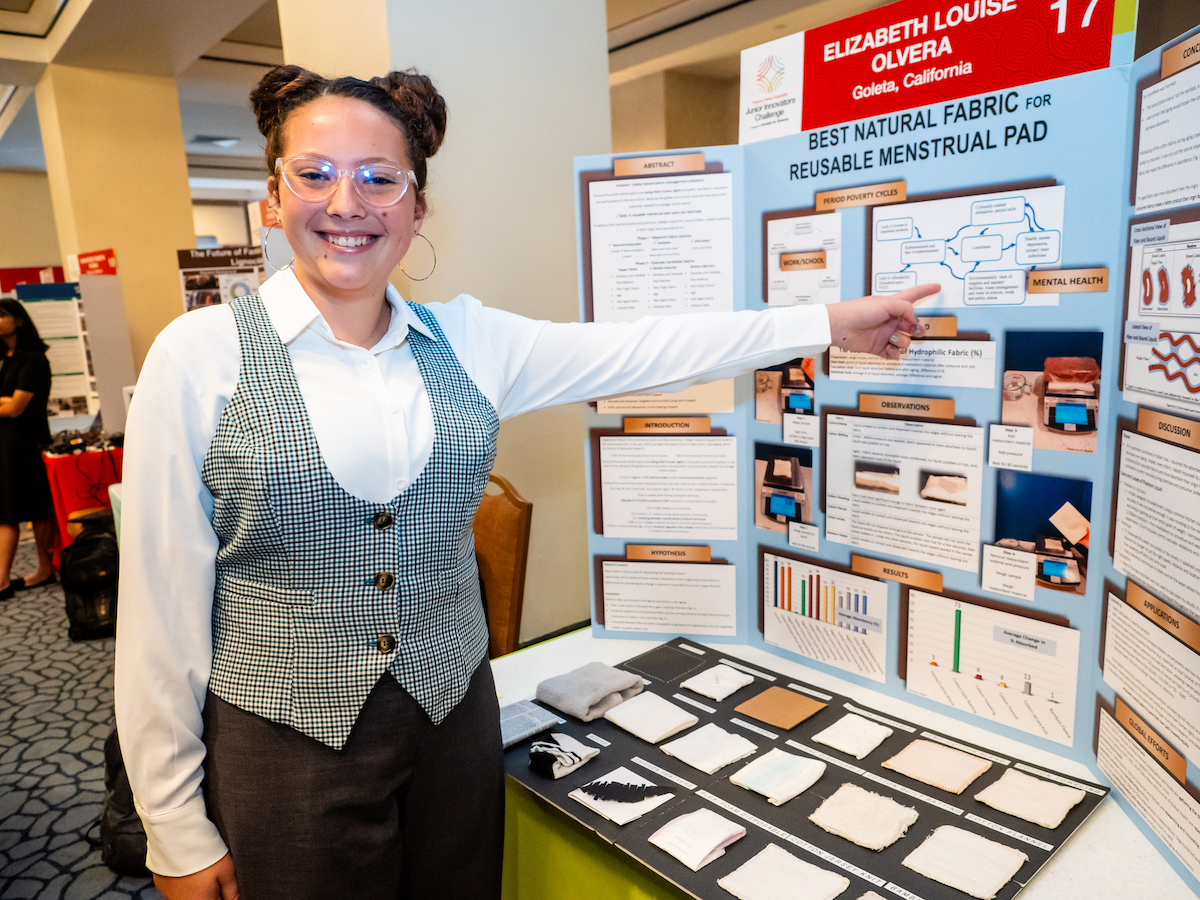
At only 13 years old, Carpinteria resident Ellie Lou Olvera is working to change the lives of girls around the world. One of the biggest issues facing adolescent girls is menstruation, which can affect everything from their health to their education, as girls who don’t have access to menstrual products often miss school when they have their period.
Olvera’s research on creating affordable, safe, and reusable menstrual pads for those experiencing “period poverty” — a lack of access to menstrual products, hygiene facilities, waste management, and education — recently won her $10,000 in the Thermo Fisher Junior Innovators Challenge (JIC), the nation’s premier middle school STEM competition.
When she’s not busy winning county, state, and national science fairs, Olvera volunteers, plays water sports, and dances flamenco, which she does every year during Fiesta. She homeschools through Santa Barbara Charter School in Goleta, which gives her a modicum of freedom to follow her scientific pursuits. When she grows up, she wants to be an environmental engineer.
“I was drawn to science because I like problem-solving and finding patterns,” she explained. “But I discovered there were major humanitarian and environmental crises affecting the globe, and I love nature and I have an empathetic heart. So what I was really interested in was helping people and nature.”
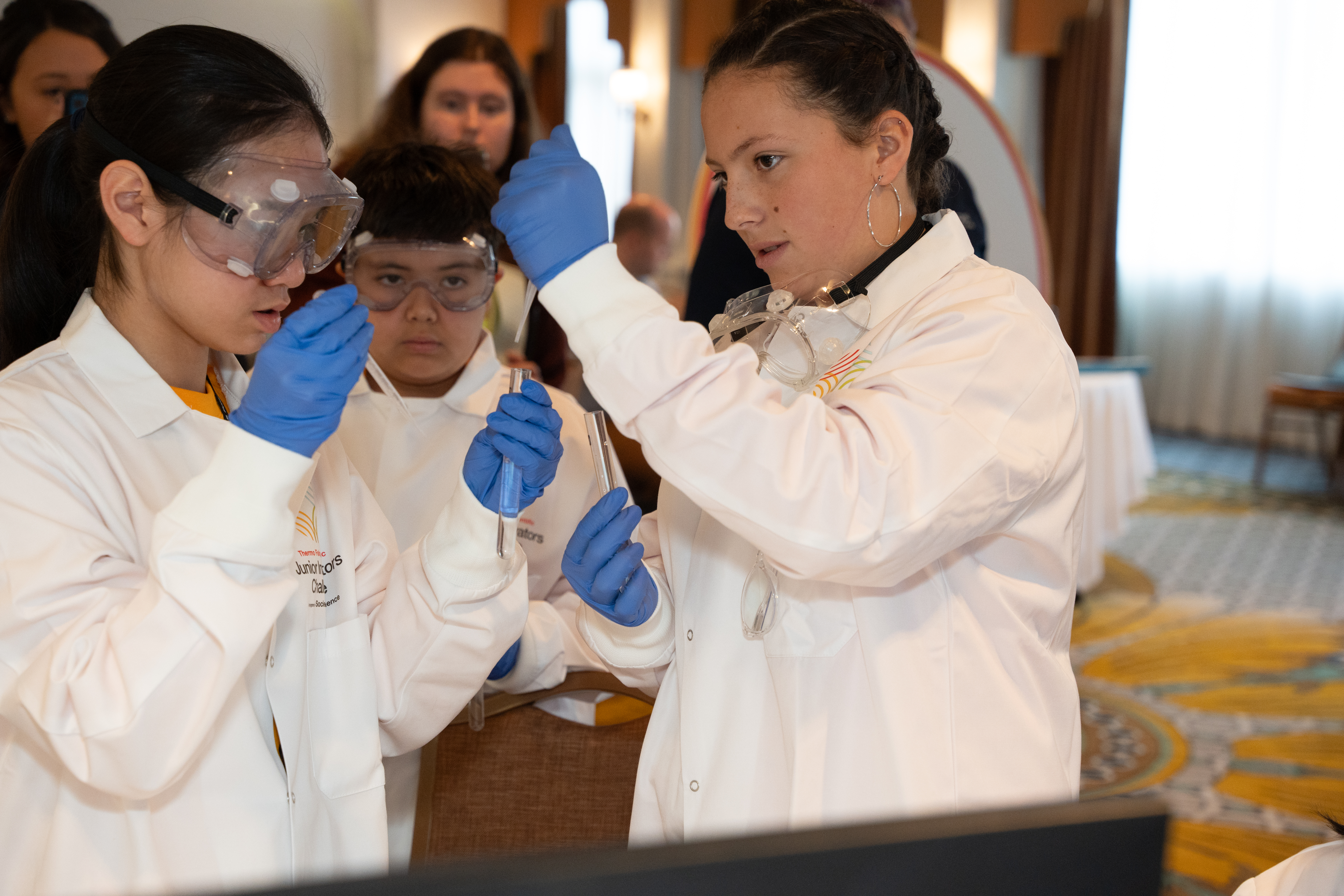
Olvera’s love for research led her to find out about period poverty when she was 12 years old, which prompted the question: “How can I help?”
While looking into reusable period pads, her original thought was to donate 1,000 reusable pads to the local community and overseas. However, she noticed that there wasn’t a consensus on the best material to use for reusable pads. So she got to work, testing a variety of natural materials — cotton, a cotton-hemp blend, bamboo fiber — to determine which one had the best absorbency.
She still needs to test the top layer (wicking) and the bottom layer (the barrier that prevents leakage), but she found that, in terms of absorbency, the cotton-hemp blend worked the best. However, the biggest discovery, she said as her face lit up, was that upcycled fabric was actually more absorbent than new materials. “So more waste can be diverted from landfills and reused,” she explained. “It solves two problems at once.”
She had been testing materials for the past eight months but started her research project about a year and a half ago, driven by her own curiosity. She exemplifies the young generation of problem-solvers looking for solutions to pressing issues the world faces today.
“Young people are not going to sit back; they’re going to take these issues into their own hands and solve them,” said Maya Ajmera, president and CEO of the Society for Science, which hosts the Thermo Fisher JIC, one of their numerous programs dedicated to ensuring young people have the opportunity to pursue a career in STEM.
“Middle schoolers are bold,” she continued. “And middle school is usually where students interested in STEM fall off, so we work to capture and nourish that interest.”
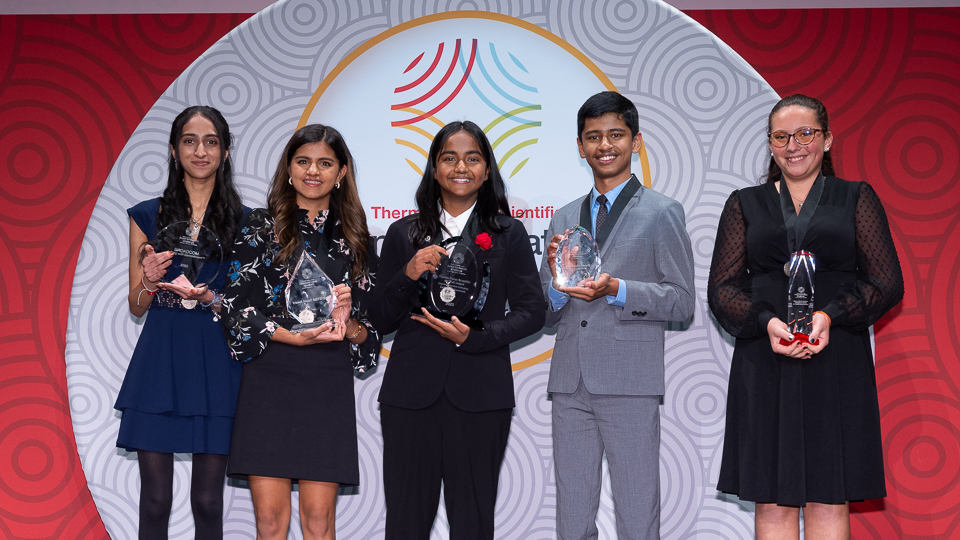
Olvera was chosen from 30 finalists, who were selected from nearly 2,000 applicants from 49 states, Guam, the Northern Mariana Islands, and Puerto Rico. Winners were selected by a panel of distinguished scientists, engineers, and educators.
Other finalists, like Olvera, took on problems that have had some effect on their own lives or their communities — the first-place winner created a highly accurate fire-detection device after the restaurant behind her home burned down, and another finalist researched how to make pickleball a quieter pastime by softening the ball.
Olvera won the $10,000 Robert Wood Johnson Foundation Award for Health Advancement, which recognizes the student whose work and performance show the most promise in health-related fields and demonstrates an understanding of the many social factors that affect health.
Olvera said she’ll be using the money for plane tickets so that she can travel to other countries to do in-person experiments on her fiber samples in different climates, such as in Panama and the Bahamas. But her work has a local component, as well.
During her research, Olvera discovered several nonprofit organizations in Santa Barbara and Ventura dedicated to getting menstrual products into homeless shelters.
Although a period is the furthest thing from a luxury, menstrual products come with a “tampon tax” — luxury tax and other taxes — as they’re not recognized as essential items. Other products with luxury taxes include cigarettes and liquor.
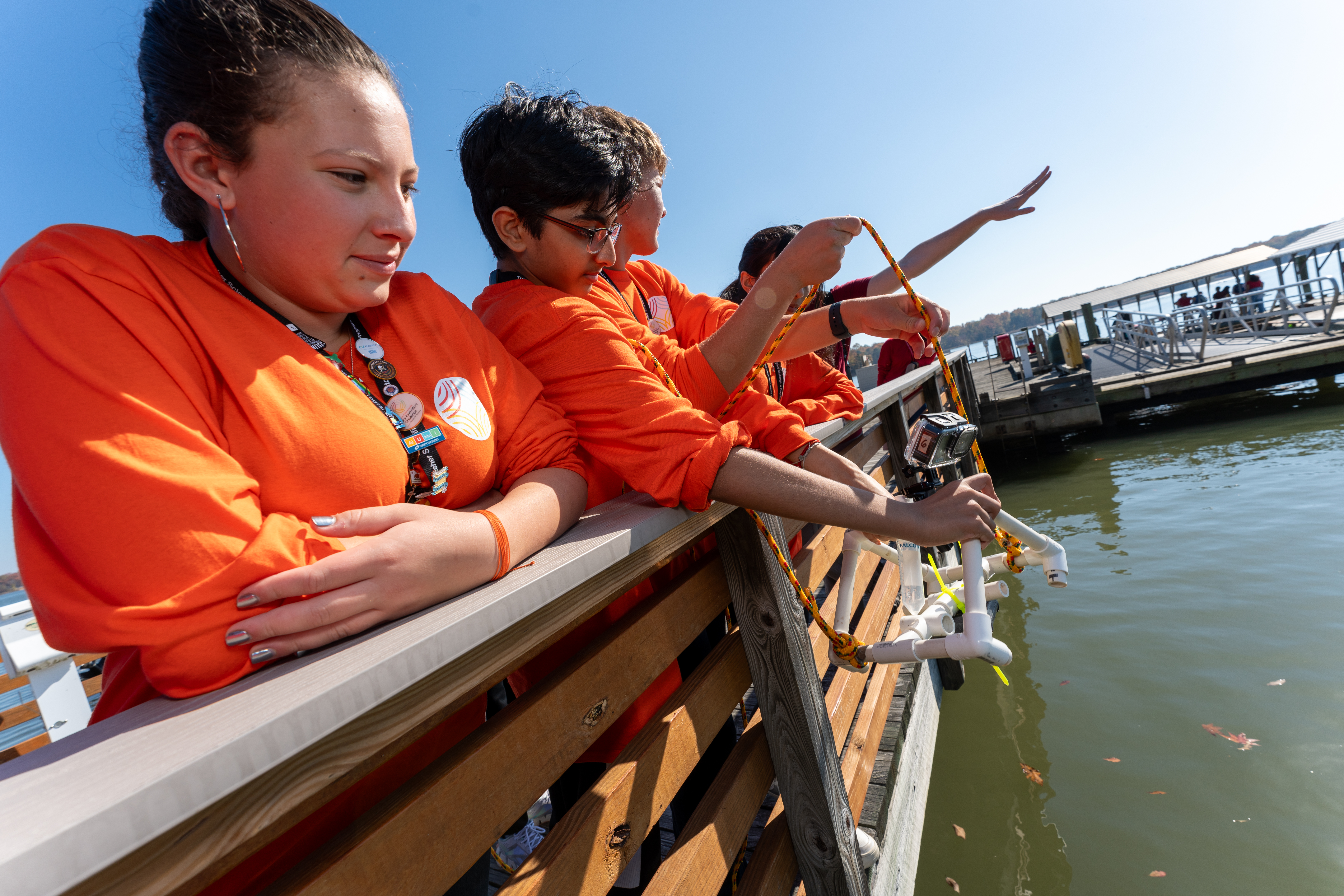
Shelters, therefore, have to shell out limited funds to purchase menstrual products, and families with EBT cards often can’t afford them, as EBT doesn’t cover them. In prisons, women only get a certain amount of tampons and pads, meaning they sometimes are forced to reuse them, which can lead to illness.
Olvera said 16.9 million people living below the poverty line frequently have to choose between menstrual products and food. There is a lack of access and education around menstruation and menstrual products, she lamented, but part of her work is making sure she’s inspiring conversation around period poverty to shift cultural and behavioral norms. She encourages people to educate, vote, and advocate to help make a difference, however small.
She has about four more years to go before all her data is collected and testing is completed, at which point she’ll be able to move on to engineering the best reusable pad based on her research, donate 1,000 pads as she planned on from the beginning, and distribute guides and resources for others to make their own. One of the local improvements she hopes to make is including sewing machines in libraries that users can check out to use to sew their own pads.
So far, she’s received a lot of “confidence and inspiration” from the science community, locally and nationally. She has many helpers — she met the head of the engineering department at UC Santa Barbara through the Santa Barbara County Science Fair, and the department promised to aid her in future sample tests.
“That’ll help with the next round of work,” she said, “but at this point, I don’t feel like I could stop.”
You can learn more about Olvera’s work here.
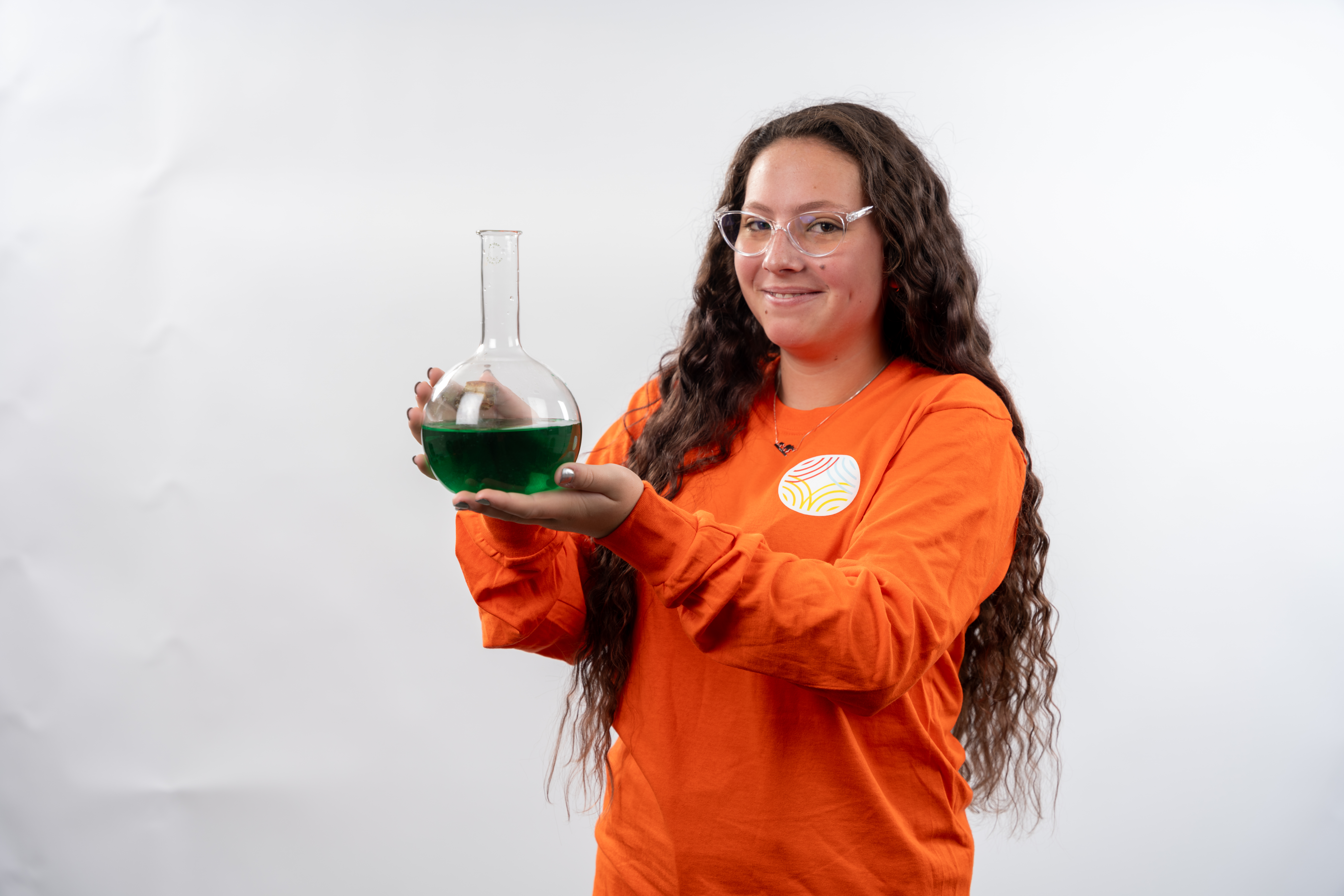

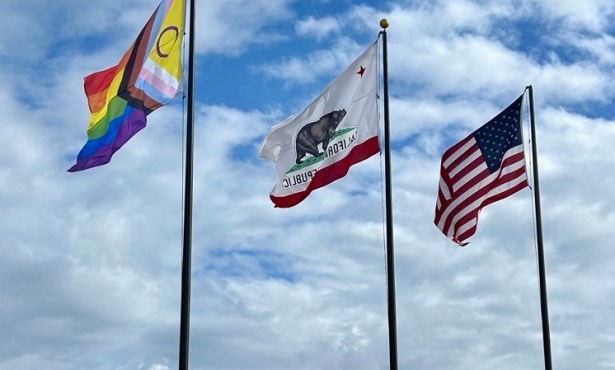
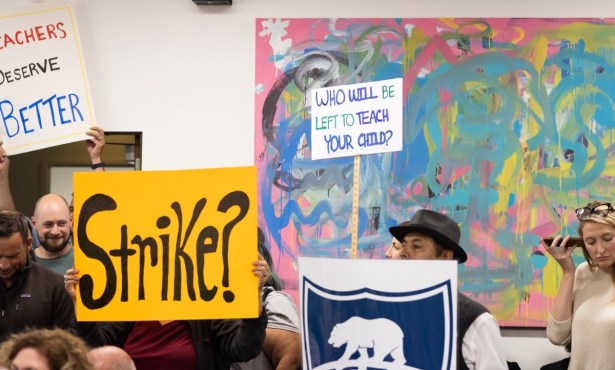
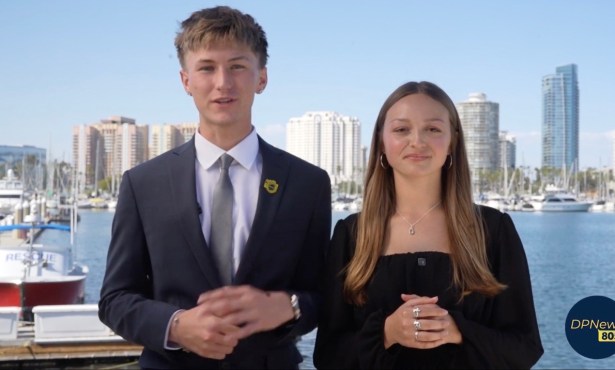
You must be logged in to post a comment.